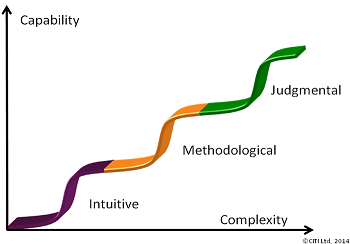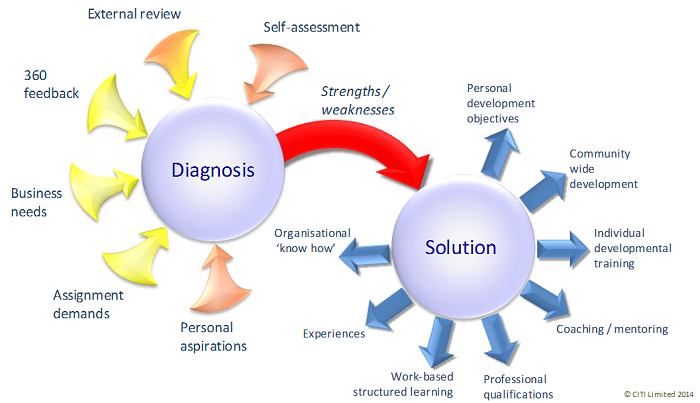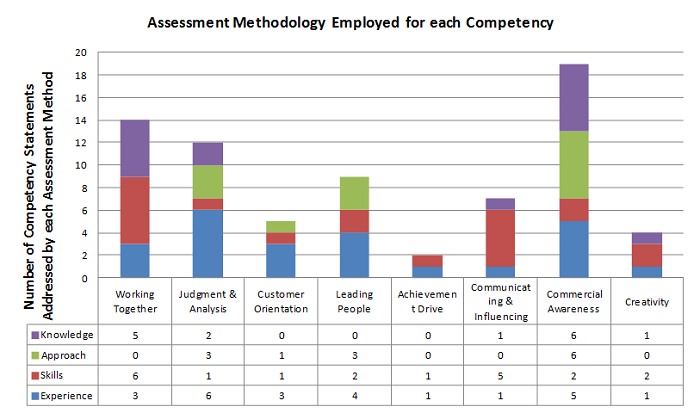
CITI’s KASE Technique (Knowledge, Approach, Skills, Experience)
An innovative approach – Companies benefit from using a sophisticated solution for filtering project manager candidates.
HR departments and recruitment agencies:
- Do you routinely profile the project management job to be filled before recruiting?
- Are you satisfied with your current recruitment efficiency? Would this be improved by having:
- An analysis that matches candidates’ experience and capability with the role
- A report that identifies strengths and development needs of a candidate
- A process that increases the chances of a recruited person staying

Organisations using our analytical recruitment process routinely report that they get fewer cases of selecting the wrong person, and fewer cases of failing to recruit the right person, while agencies – some of whom have been sent the profiling feedback from their clients to improve their selection processes – are gaining a reputation for providing well-targeted, good candidates, while using a cheaper and more reliable process.
CITI first developed KASE (Knowledge, Approach, Skills and Experience) profiling techniques in the late 1980’s after a three year research programme into what personnel factors led to successful delivery of projects. The findings were translated into programmes to match project manager capability to project demands, targeted development, and organisational commitment to the development of change management capability.
Today, the job families that are analysed include: sponsors, programme and project managers, PMO managers and staff, business analysts, and testers.
The importance of a good benchmark
Profiling is a scientific approach to personnel assessment. It gathers information about a person: their skills and behaviour patterns, their attitudes, knowledge and experience, and compares the values found against benchmark values derived from large scale statistical studies; against benchmarks established by reviews of expected performance with high performance groups in the role; and against levels of performance set as a requirement by the companies recruiting or running the promotion board.
Our analytical recruitment process has been developed over 25 years, and there are now approximately 40,000 analyses. With such a wealth of data it is possible for us to provide thoroughly tested benchmark data within many sectors, both private and public. Overall reliability and predictive validity is well over 85%, meaning that there are few cases of incorrect assessment.
Our recommended approach to the recruitment, development and retention of individuals in the project and programme community of an organisation is summarised in the illustration below. In summary it suggests that growth of organisational and personal capability and capacity benefits from using an evidence-based approach, using assessment as a tool within a kit bag of personal development tools.

The analytical recruitment process can be extended to provide support in the recruitment of highly-specialised and highly-prized roles. CITI used the KASE approach to design an assessment for the role of Head of Business Architecture. An important job, where a wrong choice by an organisation could carry quite severe penalties – as at the very least it may result in missed opportunities for business growth and improvement.
Case Study – Head of Business Architecture
The first concern was to develop a clear and agreed job specification. What was expected of the role, what exactly was the remit, and what relationships needed to be created and maintained? It was also necessary to establish to what extent the role was to reflect the professional body’s standards and competences.

Building the job spec clarified a number of issues – particularly those associated with what we call ‘touching roles’, jobs and responsibilities of others that interact with the role under investigation.
Researching the role and analysis of the job led to the development of the necessary KASE, and ways of assessing this were designed and tested. It became apparent that the most efficient way was to combine on-line questionnaires with a structured interview. Neither one of the techniques on its own could provide the necessary information.
For such specialised roles it is not possible to use normal statistical approaches to confirm the reliability and predictive validity of the assessment.
We established the ‘benchmark’ values for this senior role by:
- Reviewing our existing data on touching roles
- Researching published articles by recognised practitioners of the role
- Inviting practicing professional in the role to act as a ‘Delphi’ group
- Using professional bodies’ documents outlining the required competencies for this field, which in this case included:
- IIBA competencies relevant to the business analysis discipline
- BCS, through the SFIA skills and competencies for IT Professionals
- Sentient Point Report that compares and contrasts business analyst competencies against business architect competencies.
Candidates were then invited to answer the questionnaires on-line and then to attend an interview session. The report that combined the two sets of input was used by the organisation to decide, whether and who to invite for further personal assessment by HR and their work colleagues as the organisation must ensure that the candidate fits the culture of the company and that can only be done internally.
Outcome
The approach using KASE worked. It was seen as effective and professional by the organisation – and at least as important by the candidates – who thought it a fair test of their abilities. It also had an important side effect in that the job specification process was seen to have been beneficial in improving the overall company performance. The organisation found what they considered to be a ‘perfect fit’ and progress is good.
Getting the right person in the right role within a company is important, but with the rising rate of change it is also important to make sure the fit remains right – either by the right choice or by structured personal development.
CITI is predominantly a consultancy in delivering change capability to organisations using project, programme and portfolio management. To do this CITI focuses on assisting organisations to translate strategy into action and build the necessary capability and capacity to deliver planned or directed change.
Please contact us with any questions.
Latest posts by Patrick Boulter (see all)
- Analytical Recruitment Process - 10 October, 2014









